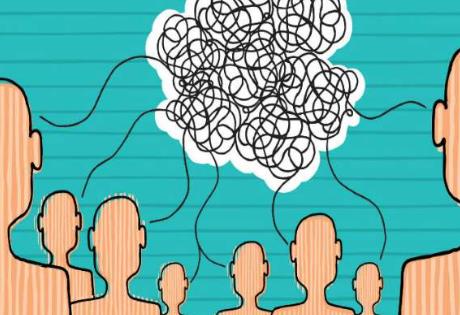Would you agree that communication just might be the most important tool we have? And by communication I mean spoken conversation. Do you believe that spoken communication is ideal? Do you believe that given a choice, a choice that isn’t ALWAYS available, voice communication is best? If so, keep reading. I think you’ll find some thoughts on how you can make your communications clearer and therefore better thoughts that could make you a communication superstar.
So let’s make sure we understand the basics. You must know who you’re communicating with. I once had a boss who was genius at altering his empathy and communication style in an instant, depending on who he was communicating with. A great skill, as long as you use it authentically. I emphasize the importance of knowing who you’re talking to because we do have a significant divide in ages in the workplace today. I know most of you don’t spend the majority of your time communicating with millennials who prefer digital communication, so I’m focusing on verbal communication, though some of this will work in digital communication.
To be a communication superstar you have to nail clarity. You have to get the vague out. Get to the facts. Now I’m not talking about being factual all the time, I’m talking about getting the ambiguity out of conversations and usually that means getting down to the facts. I have a friend and coach who call this technique “getting the adjectives out” and it’s not a bad way to describe it. He cites as an example, someone who tells him, “so and so is impossible to work with.” What does impossible mean? I’m sure they don’t really mean impossible. If they did they’d just stop trying to work with this individual knowing it’s impossible. So the key is to ask, “What do you mean by impossible?” Ask what “impossible” means. As the person starts to think about the reasons they label the person as impossible, clarity comes around on how to solve the issue. Empathy is important in this kind of communication, because the person’s perception and frustration is probably right, but labeling with an adjective like “impossible” doesn’t do anyone any good because it’s too hard to “fix” impossible.
Working through the labels/adjectives helps get communication on the same level. You can start to look at things more objectively and it’s hard to ignore objective observations. Truth is that everyone can’t be on same page when it comes to vocabulary. That’s why if you work to be effective in your communications, making sure that the descriptors used are understood by all parties, you will stand out as a superstar. Stand out as someone others will be drawn to. Stand out as the “go to” person to get things ironed out or done to everyone’s satisfaction.
People who rely on ambiguous words are typically people who often feel misunderstood and stuck. You can be a superstar by helping them. Help them bring their brilliant findings to light. Help them express themselves in a way that helps them get what they want. Help them unlock their potential by bringing clarity, so everyone doesn’t miss out on what can be incredible opportunities. Sounds like a worthwhile reason to hone your communication skills doesn’t it? Most won’t bother, so there’s a huge opportunity for those that do. A huge opportunity to help oneself and others. I hope you’ll consider it.


